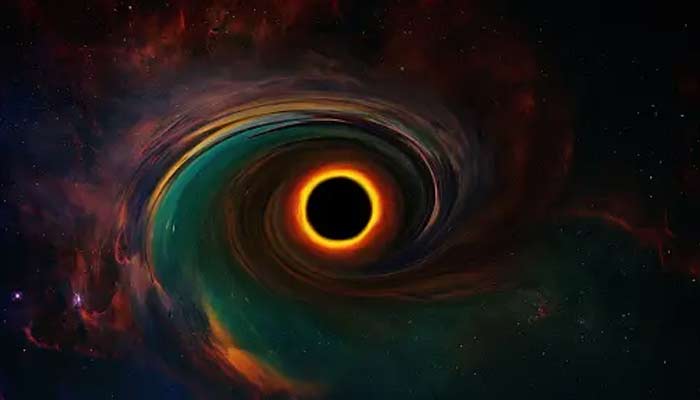Black hole spinning at speed of light finally discovered?
Black holes spin faster when they grow through accumulation of matter
The fortuitous encounter of a distant supermassive black hole with a star, which it rapidly annihilated, allowed astronomers to measure the speed of the black hole's spin.
Every black hole has spin, which is the result of interactions with other space-based matter.
Black holes tend to slow down when they develop through mergers with other big objects; they can spin faster when they grow through the accretion of matter.
In a recent study, the group measured the wobble of an accretion disc that results from a star being disrupted — a polite term for being ripped apart — by a supermassive black hole in order to determine the object's spin.
They discovered that, at least for a black hole, the black hole's spin was sluggish—less than 25% the speed of light. The team's findings were released in Nature.
“The spin of a black hole is tied to its evolution. For example, a black hole that grew by steady accretion of gas over billions of years tends to be high spinning while a black hole that grew by mergers with other black holes should be slow spinning,” said Dheeraj Pasham, an astronomer at MIT and the lead author of the new paper, in an email to Gizmodo.
-
Scientists discover rare form of 'magnets' that might surprise you
-
Humans may have 33 senses, not 5: New study challenges long-held science
-
Northern Lights: Calm conditions persist amid low space weather activity
-
SpaceX pivots from Mars plans to prioritize 2027 Moon landing
-
Dutch seismologist hints at 'surprise’ quake in coming days
-
SpaceX cleared for NASA Crew-12 launch after Falcon 9 review
-
Is dark matter real? New theory proposes it could be gravity behaving strangely
-
Shanghai Fusion ‘Artificial Sun’ achieves groundbreaking results with plasma control record












